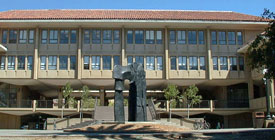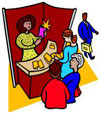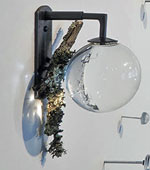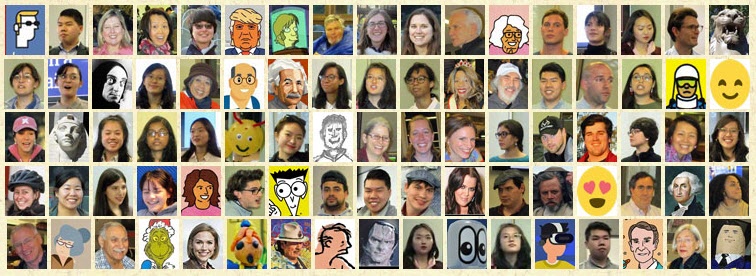
|
Design, Technology , and Engineering benefitting individuals
with disabilities and older adults in the local community |
February 12, 2020 |
|
|
|
|

Perspectives is the newsletter of the
Stanford course,
Perspectives in Assistive
Technology.
Improving Home Environments for
Older Adults
This issue invites you to attend the next class session and
encourages your participation in the course's Assistive Technology
Faire.
|
Perspectives in Assistive
Technology is a Winter Quarter Stanford course - entering its
fourteenth year - that explores the design, development, and use of
assistive technology that benefits people with disabilities and older adults.
It consists of semi-weekly classroom discussions; lectures by
notable professionals, clinicians, and assistive technology users; tours
of local medical, clinical, and engineering facilities; student project
presentations and demonstrations; an Assistive Technology Faire; and a
film screening. |
Course
News
Do you have a suggestion for a
film about disabilty and assistive technology? - I am looking
for suggestions for a film to screen on Tuesday, March 3rd during classtime.
The film must not be over 60 minutes in length and must be available on DVD for
no or low cost.
Next class session - Thursday, February 13th at
4:30pm
|

|
Improving Home Environments
for Older Adults
Matteo Zallio, M.Arch,
PhD
Fulbright Scholar |
Abstract: As the world's population ages and new
services and technologies proliferate, older adults are facing increasing
difficulties understanding and using these new technologies. While Assistive
Technology has the potential to improve their quality of life and increase
their independence, older adults may find it difficult to identify truly
beneficial solutions.
This lecture will offer an
overview of the main challenges that older adults face and provide critical
knowledge on successful design techniques through numerous examples and a
discussion of guidelines for shaping inclusive environments.
Biosketch: Dr.
Matteo Zallio is a visiting UX researcher at Stanford University's
Autonomous Systems Laboratory. Formerly he was a Fulbright Scholar at
Stanford's Center for Design Research (CDR), the CEO of the start-up
Déan Design Lab, and is an Italian award-winning architect and designer.
After obtaining a Master degree in Architecture and a PhD in Industrial Design
from University of Genova (IT) and Loughborough University (UK), he joined the
Environmental Sustainability and Health Institute as a research fellow at the
Technological University Dublin focusing his research and consulting on User
Experience Design as a tool for improving people's quality of life.
During his career he has
developed two patent applications and received several international awards
including: Marie Sklodowska Curie Individual Fellowship (EU), Fulbright
Fellowship (USA), and Emerging Scholar from the George Brown College (Toronto,
Canada). He is the chairman of the Irish National Mirror Committee for the
development of the standard ISO TC 314 "Ageing Societies" and expert
representative for the standard ISO TC 215 WG2 "Health Informatics". He is also
a mentor at Open IDEO, an expert member of international jury panels (Students
for the Advancement of Global Entrepreneurship (SAGE USA), a member of European
Innovation Partnerships (EIP on AHA), sits on the Scientific Advisory Board and
is co-Chair of AHFE International, a member of the Editorial Review Board of
the International Journal of Art, Culture, and Design Technologies (IJACDT),
and a speaker worldwide.
Current research activities
include:
- Inclusive Design Rating Toolkit: Design of a toolkit for accessible
environments
- Citiziner: Citizens as designers
- User-centric IoT: Inclusive Design Guidelines for IoT-based
devices
- Design facilitators: DataViz and Infographic as new facilitators for
communicating information
|
You are invited to attend this
and all other class sessions - Class sessions will be held on
Tuesdays and Thursdays from 4:30 to 5:50pm and are
open to the greater Stanford community. You need not be a Stanford student to
attend, no signup is required, and there is no charge. The full schedule can be
found here |
 |
|
|
Same classroom! -
The course will be held in classroom 282 in the
Lathrop
Library located at the corner of Lasuen Mall and Serra Mall, adjacent to
Memorial Auditorium and the Oval. It seats as many as 150 people in a flexible
and accessible space. Here is a webpage with maps, directions, and photos. |
 |
|

You are invited
to participate in the Assistive Technology Faire - Last Call for
Vendors - This eighth annual course event will provide an
opportunity for students and community members to get an up-close look at a
variety of assistive technology devices and learn about available services.
Users of assistive technology products as well as small companies
and agencies serving individuals with disabilities and older adults are
encouraged to bring assistive technology devices and information to display,
demonstrate, and discuss. Please browse to the Call for
Assistive Technology Faire Participants webpage and contact me if you would
like to be a part of this event as a user or vendor of assistive technology
products or services. Everyone is welcome to attend the Faire.
The Faire will start at 4:30pm on
Thursday, February 20th in the
Lathrop Library, Classroom 282.
Here is the program,
slides, and
Matteo's,
Krystina's &
my photos from last year's
Faire. |
Upcoming class sessions:
Ongoing local event:

SOMArts proudly announces the second
exhibition in the 10th Curatorial Residency season. Curated by Vanessa Chang
and Lindsey D. Felt, Recoding CripTech reimagines enshrined notions of
what a body can be or do through creative technologies, and how it can move,
look, or communicate.
Working with a broad understanding of
technology, from prosthetic tools to the built environment, this
multidisciplinary community art exhibition explores how disability - and
artists who identify as such - can redefine design, aesthetics, and the
relationship between user and interface. Exhibiting artists engage with
technology in manifold ways from conception to production and beyond. As the
term "crip" reclaims the word for disability culture and recognizes disability
as a cultural and political identity, so too do artists hack technologies to
make them more accessible and inclusive.
|
Other
Support the
course - Funding in any amount for the course and student projects
is always welcomed. Monetary gifts support approved project expenses,
administrative costs, honoraria for guest lecturers, and the end-of-term
celebration. Refer to the Course and Project Support
webpage for more information.
Email
questions, comments, or suggestions - Please
email me if you have general
questions, comments, or suggestions regarding the course. Thank you again for
your interest.
Dave
|

To unsubscribe from this newsletter, please email
Dave. |
|







